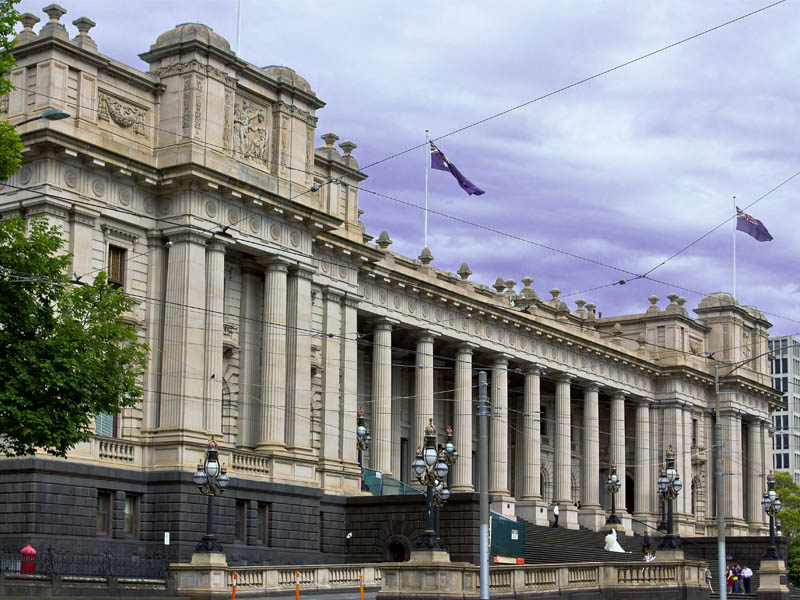The Victorian government says its ICT Strategy is still a core focus despite remaining mostly silent on its progress and implementation since its launch more than a year ago.
The Information Technology Strategy 2016-2020 was launched in May last year. But just two weeks later Special Minister of Mtate Gavin Jennings, who is responsible for the strategy’s deployment, was suspended from Parliament for six months.
Since then, the state has remained virtually silent on its much-heralded ICT strategy, with no statements or press releases on its progress, and numerous attempts to interview Mr Jennings over the last six months have been rejected.

Despite the silence, the government maintains that the strategy is still a key focus.
“The Information Technology Strategy 2016-2020 is a priority for the Victorian government. It leads the technology changes required to enable our ambitious public sector reform agenda,” a department spokesperson told InnovationAus.com.
The Victorian Government has been reluctant to draw attention to its internal technological efforts, despite quietly releasing an annual report card in March claiming that everything was going well.
According to the government, of the 22 actions scheduled to have been completed by the end of March, 19 have been completed, two are currently going through approval and one has been “intentionally delayed”.
“We have made significant progress in the past year, with most actions delivered or on track. The work of the past 12 months has set the foundation for the next stages in delivering a more cohesive approach to government’s use of technology, and improving how Victorians engage with government,” the spokesperson said.
From the outside, the results seem fairly impressive, but the government’s continual radio silence should raise alarm bells.
Many of the items that have been ticked off as completed have not been publicly released, including the CenITex governance arrangements, the upskilling plan for ICT capability within government, and the framework for digital assets.
The annual report said the statement of direction for staff management and an options paper on the long-term storage of data would be released by the end of April, but neither have been publicly revealed yet, months later.
While claiming that everything is fine, the department’s relative silence on the strategy sits in stark contrast to the state government’s approach to innovation and external tech policy.
Innovation minister Philip Dalidakis, who helms that portfolio department, has embraced the position as a megaphone for the industry and governments’ movements within it, regularly releasing statements, engaging with media and speaking at industry events.
But Mr Jennings has remained absent from the debate in Victoria on government ICT.
Mr Dalidakis himself may have hinted at the reasons behind the government’s shyness on its IT strategy, in a speech to the AIIA earlier this year.
“The Victorian government is no doubt a little bit shy when it comes to IT projects. We have suffered under previous governments – whether they’re Liberal or Labor – with ICT procurements, cost overruns and not getting it right,” Mr Dalidakis said.
Victoria has a chequered history in digital transformation and IT projects within government, culminating with a 2011 Ombudsman’s report which found $1.4 billion worth of IT project overruns.
Recent debacles in the state include the introduction of Myki and the canned VicRoads registration system upgrades.
“Don’t be scornful of our past but encourage us for our future. Because if we get this right there is a lot to achieve – whether it is health records, whether it is data you need to get from point A to point B, whether it is information about schools in your areas and class sizes in real time,” Mr Dalidakis said.
Victoria’s approach is also in contrast to its state tech rival, with the New South Wales government regularly promoting its own IT movements as means to nurture and grow the local startup and tech sectors.
Many of the initiatives included in Victoria’s ICT strategy will face scrutiny from the state’s auditor general in the coming years.
In its three year plan published earlier this month, the Victorian Auditor-General’s Office revealed it will be placing a specific focus on the effectiveness of the initiatives implemented as part of the strategy.
The actions to be audited in the coming years include the digital dashboard, launched last year to track government IT projects worth more than $1 million, the CenITex upgrade, the yet to be released cyber security strategy and the management of cloud computing in the public sector.
The department declined InnovationAus.com’s request to interview Minister Jennings for this story.
Do you know more? Contact James Riley via Email.

